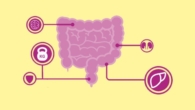
Sleep: 3 Obvious Signs You Have a Sleep Disorder
0
There are many reasons for sleep loss, and some of them may be innocent, such as irregular working hours. However, lack of sleep can signal a sleep disorder.
According to Dr. Holly Milling, clinical psychologist and founder of The Sleep Practice, there are three telltale signs of a sleep disorder.
She explained:
“If you struggle to fall asleep, wake up feeling tired or regularly experience severe daytime sleepiness, talk to your GP or sleep specialist.”
Some common types of sleep disturbances include:
- Insomnia, in which you have difficulty falling asleep or staying asleep through the night.
- Sleep apnea, in which you experience abnormal breathing patterns during sleep. There are several types of sleep apnea.
- Restless legs syndrome (RLS), a type of sleep movement disorder. Restless legs syndrome, also called Willis-Ekbom disease, causes discomfort and an urge to move your legs when you try to fall asleep.
- Narcolepsy, a condition characterized by extreme daytime sleepiness and sudden sleepiness during the day
There are many ways to help diagnose sleep disorders. Doctors can usually effectively treat most sleep disorders if they are properly diagnosed,” adds the Mayo Clinic.
Most sleep loss is not a sign of a sleep disorder, so it can be corrected with simple lifestyle changes.
p>
- When it comes to maintaining your physical and mental health, sleep is more important than diet and exercise combined.
- Try to wake up at the same time every day (even on weekends!). Healthy sleep loves consistency, and waking up at the same time helps regulate your body clock (circadian rhythm), which in turn helps your sleep.
- Access to natural light in the morning when possible.
- Avoid caffeine after lunch.
- Create a rest period an hour before bed to allow your body and mind to transition from daytime activities to night time and rest.
- Reduce screens and brighter lights in the evening to minimize exposure to blue light.









Leave a Reply